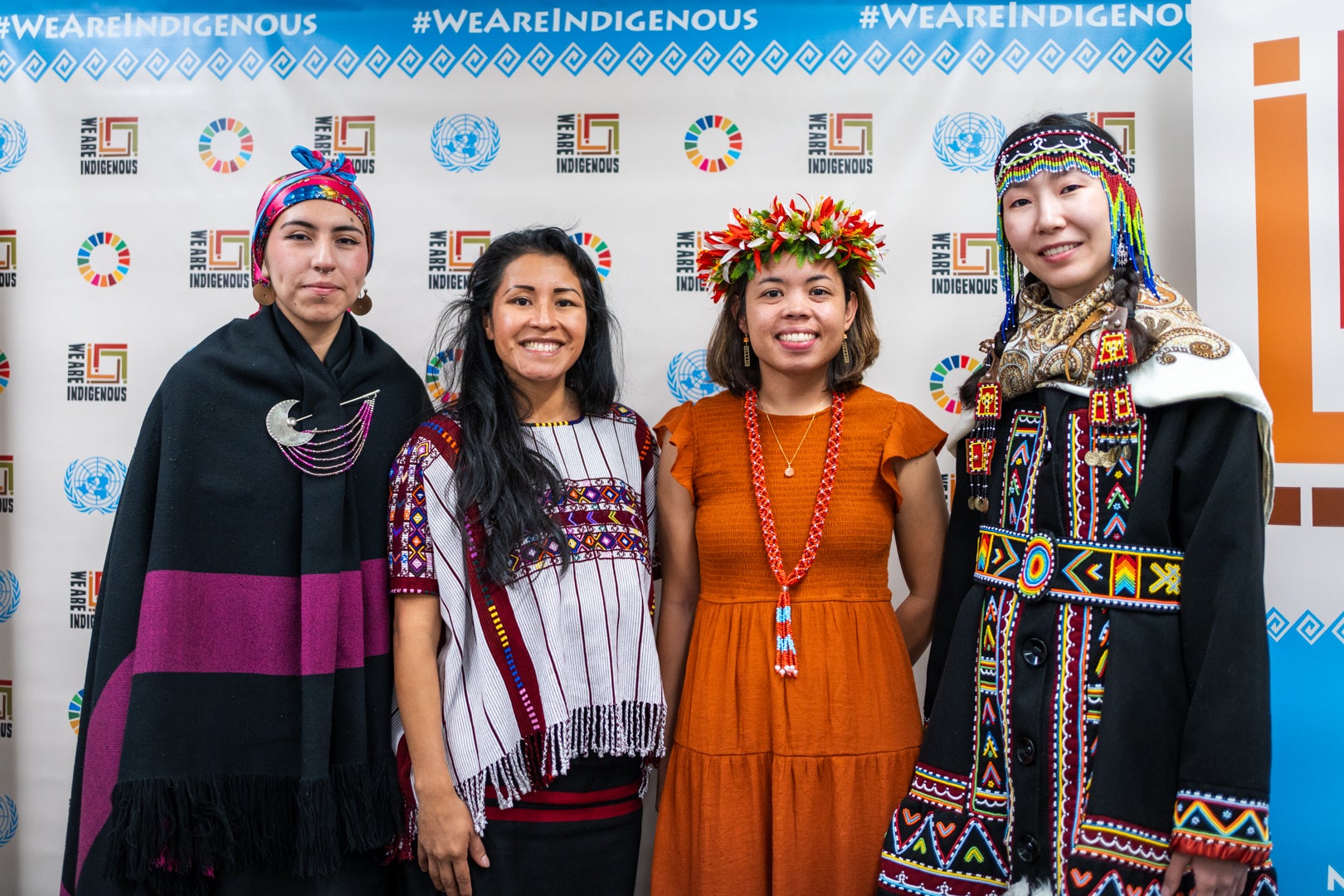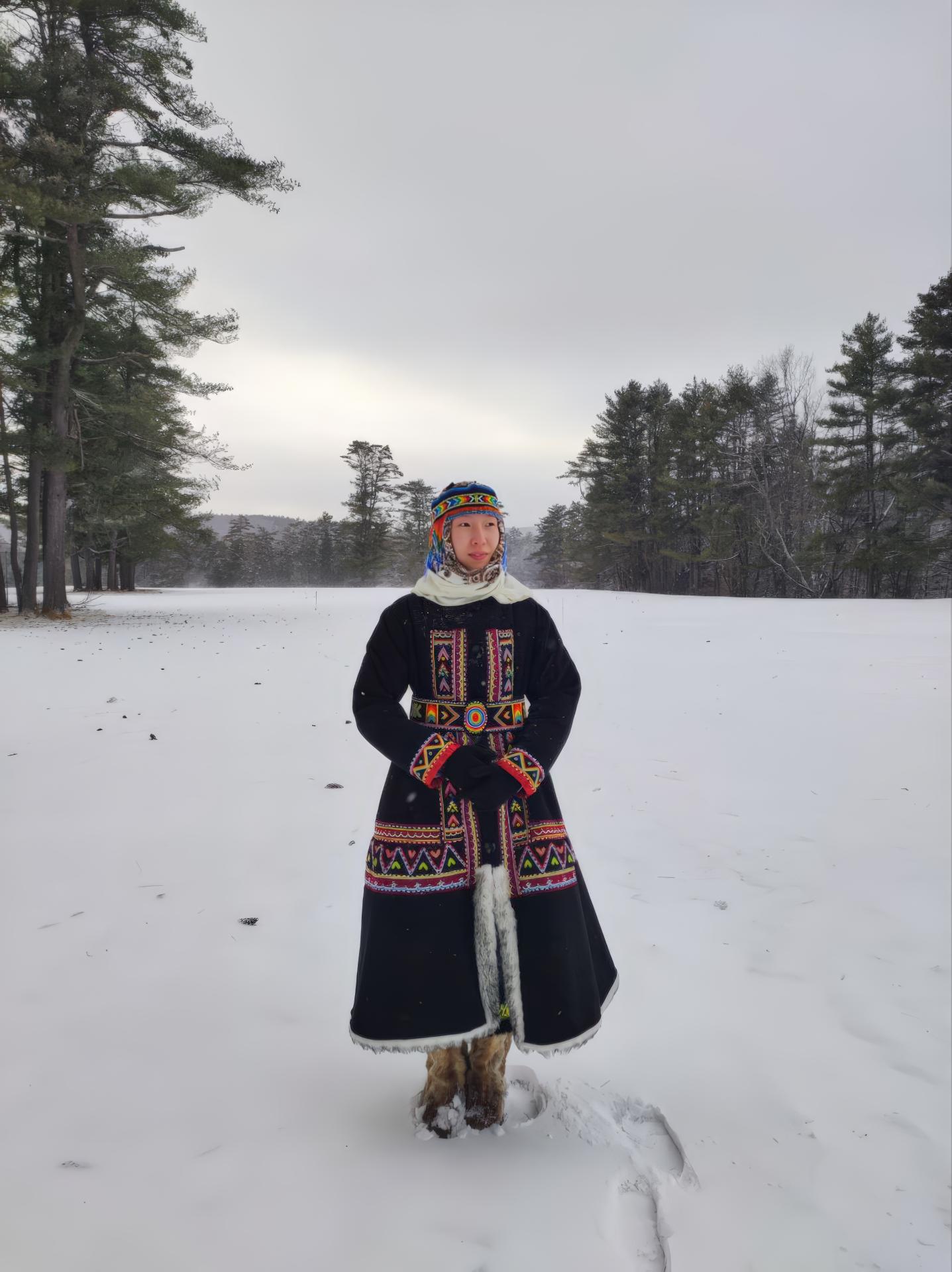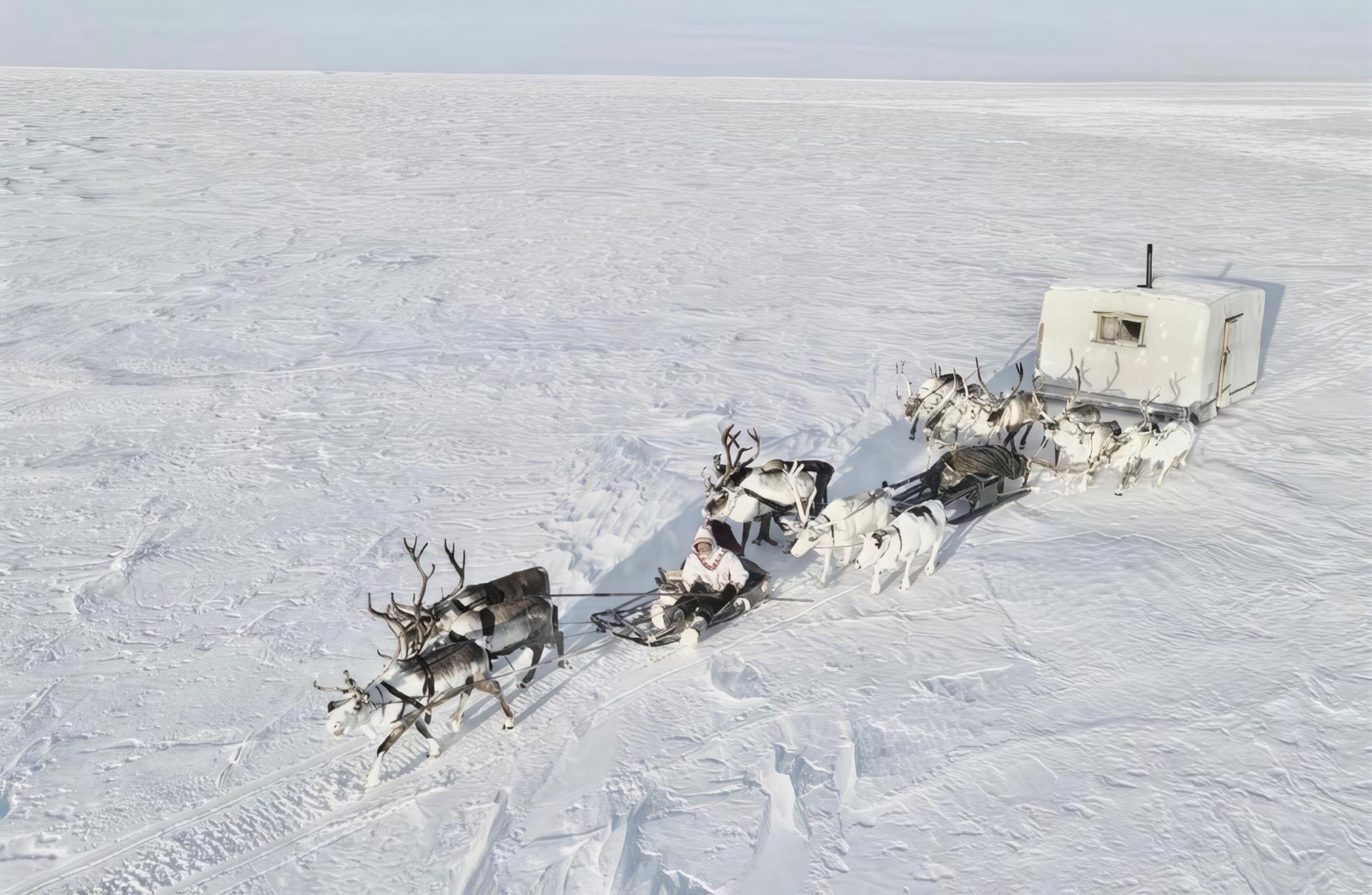
Kseniia Bolshakova (Dolgan) is an Indigenous language activist and writer and a member of the Dolgan Tribal community Yydyna (“Moonlight” in Dolgan), born and raised in the Dolgan settlement and tundra of Popigai on the Taymyr peninsula in the Russian Arctic. She grew up reindeer herding, fishing, hunting, and gathering. Bolshakova is deeply concerned about the loss of her mother tongue and Traditional Knowledge, as well as issues of ongoing colonization and the results of assimilation by the Russian State. “I am very worried about the low self-determination in my community. Because of this, my people are largely indifferent to the loss of our native language, Traditional Knowledge, and way of life. I understand that this is due to colonization and not being recognized by the authorities as Indigenous Peoples themselves, as well as State assimilation efforts succeeding. Being small in number, we are in danger of extinction, both physically and spiritually,” she says.
Dolgan is the northernmost Turkic language in the world and is closely tied to reindeer herding. There are only 8,000 Dolgans and just 800 speakers of Dolgan worldwide, making Dolgan a critically endangered language. Bolshakova belongs to the youngest, and possibly last, generation of Dolgan speakers. The closest linguistic relative to Dolgan, which means “tribe living on the middle reaches of the river,” is Sakha. The language is local and restricted to a small area, and has declined in usage due to assimilation efforts by the Russian State.

Kseniia Bolshakova with CS Youth Fellow, Rayen Rupayan (Mapuche); CS Capacity Building Manager, Nati Garcia (Maya Mam); and CS Youth Fellow, Shaylin Salas (CHamoru). Photo by Jamie Malcolm-Brown/Cultural Survival.
Bolshakova is one of two people in the world to write prose in Dolgan. She is passionate about Indigenous languages and currently works as a content manager of the Sakha (Yakut) language learning application, Sakhalyy, and as an editor of the lexical database and electronic dictionary of the Chukchi language. She is also a linguistic data coding assistant on the Kumandy language at Dartmouth College.
Bolshakova crafts her prose in the dynamic and concise genre of flash fiction. Her debut bilingual Dolgan and Russian-language flash novel, “The Frost Also Melts,” is composed of 16 flash novellas. A flash novel is a relatively new literary form that combines the brevity of flash fiction with the narrative depth of a traditional novel. It consists of a series of interconnected vignettes, allowing for a nonlinear narrative structure. Bolshakova’s narratives encapsulate memories from her nomadic childhood in the tundra and reflections on the destiny of the Dolgans. The novel is about the forever that is becoming finite: permafrost, tundra, reindeer herding, and native language.

Kseniia Bolshakova
The production of Bolshakova’s book was supported by Cultural Survival’s Indigenous Youth Fellowship program, which supports young Indigenous leaders between the ages of 17-28 who are eager to learn about technology, program development, journalism, community radio, media, and Indigenous Peoples’ rights advocacy. Since 2018, the program has awarded 110 fellowships supporting 204 fellows. Fellowships allow youth to build capacities in Indigenous rights, Indigenous languages, cultures, and Traditional Knowledge, assisting them in representing the voices of their communities and raising awareness of local issues in global conversations while strengthening their cultural identities and leadership skills.
Bolshakova’s fellowship project, “Haka Huruk: Transmitting Dolgan Values by Creating Dolgan Literature,” focuses on revitalizing the Dolgan language through storytelling and the development of bilingual literature in Dolgan and Russian. The following is the first chapter of “The Frost Also Melts,” titled “The Forever and the Finite.” To read more, find her on Instagram at @haka.huruksut.

THE FOREVER AND THE FINITE
Kseniia Bolshakova (DOLGAN)
The North is usually associated with heroic Soviet films about polar explorers and oil men on their long lucrative tours of duty. Some people were born in Siberia because their great-grandfathers and grandfathers came here with their great and small communist construction projects. Some people’s families were persecuted and exiled to our lands, so savage and unfit for life. And some people call themselves native Siberians because 300 years ago their ancestors came here with swords and fire to conquer our lands for the expansion of Muscovy. Among these millions of northerners, the original Indigenous Peoples of the North become statistically utterly insignificant.
The “Extreme North” is a flexible concept. It contains both the desert sands on the Mongolian border and my native Taimyr, a desert of snow washed by the icy Arctic Ocean. The most arctic of Arctics, the permafrost zone. The imperial, Soviet, and modern-day Russian authorities always considered the North an inexhaustible borehole. Taimyr really does mean countless oil deposits, natural gas, platinum, gold, silver, nickel. But nothing is infinite and forever. Global warming is rapidly melting the permafrost. The mining companies will eventually exhaust our assets—our depths. And the Indigenous Peoples are flickering out, cut off from traditional lifeways, mired in assimilation and left in a civilizational breach with no provisions.
The times when the Indigenous peoples of Taimyr lived in chooms have passed. Now reindeer herders move around in baloks. A balok is a portable home on sledge runners. On the outside the wooden framing is covered in felt and reindeer skins with a tarp over top. My family are lower Dolgans, who live by the lower reaches of the river Khatanga. My grandmother remembers that the upper Dolgans were the first to start moving from chooms to baloks. The lower Dolgans started using a winter balok only in the 1980s, and a summer one only in the 1990s. Living further to the north, we kept our language and our reindeer herding longer than the upper Dolgans. But now even among the lower Dolgans there are basically no kids who speak Dolgan anymore and no reindeer families either.
Now all of our relatives live a settled life in the rural settlement of Popigai and the village of Khatanga. My mother’s parents, grandpa Alyosha and grandma Masha, spent their whole lives in the tundra. My grandfather was the foreman of the first reindeer herding brigade in his home settlement of Old Popigai. The Popigai herd was the biggest in the Khatanga district. Grandfather was very respected throughout the district both among the nomads and the village people. He often got written about in the newspaper and was even awarded the title “Honorable Citizen of Taimyr.” Grandmother was born in the now-closed rural settlement of Novoletovye to the north of Zhdanikha. She went to veterinary school in Dudinka, and after her studies the Khantanga veterinary station sent her to work in the Popigai tundra. In this way, grandmother and grandfather’s working life in the tundra went on year after year. They raised five daughters who gave them 10 grandchildren. I was their first granddaughter.
Their last nomadic years were also the years of my childhood. I was unspeakably lucky to have experienced both the reindeer games of childhood and grown-up reindeer herding concerns by their side. The tundra went deep into my heart. It was the tundra that nurtured in me a sense of unity with our spirits, our people and our land. This power is my Dolgan staff that helps me make my way through life, supports me, and keeps me from going to pieces.
English translation by Ainsley E. Morse.
